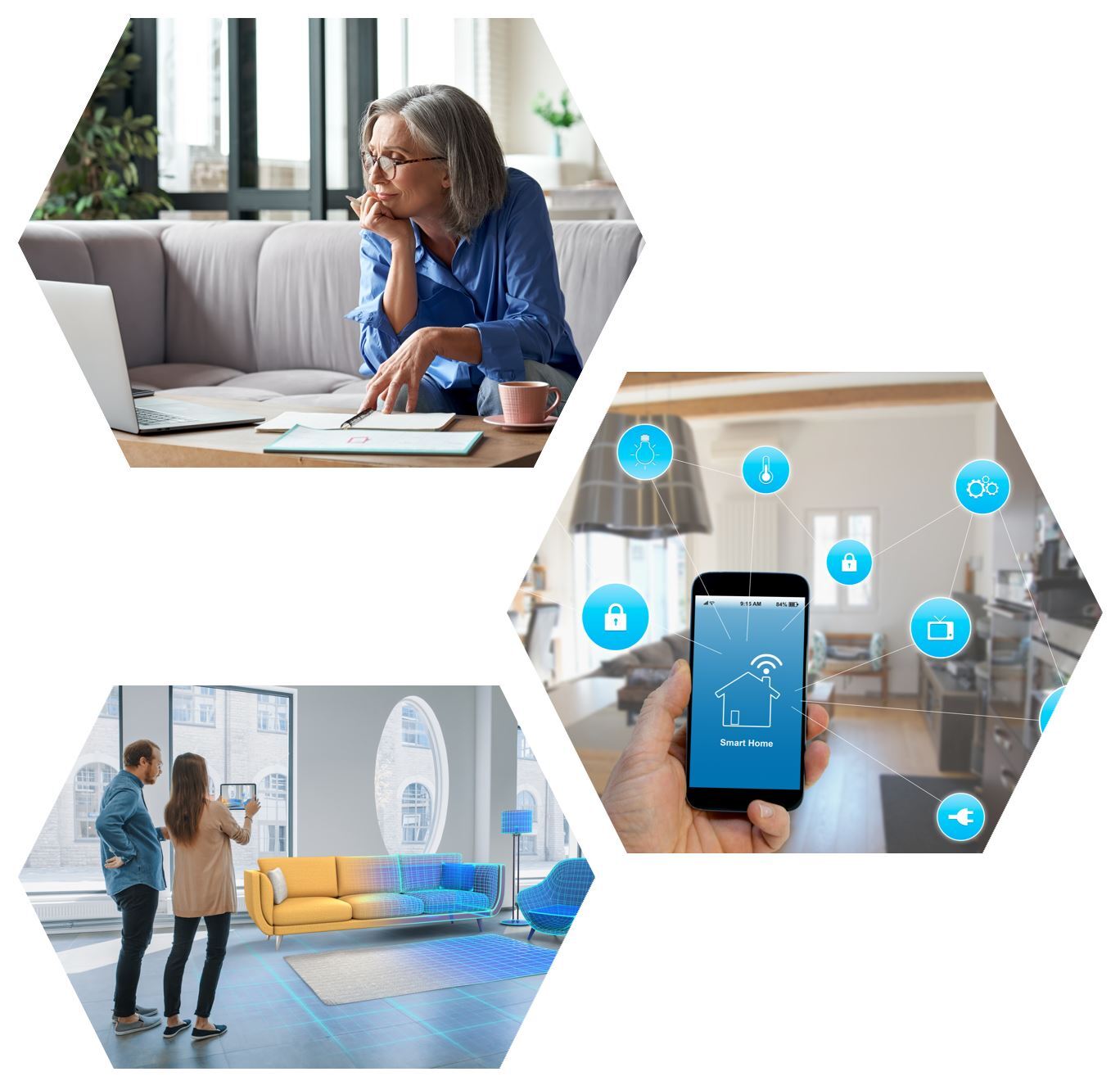AgeLab Hosts Two-Day Virtual Symposium on Future of Home
by Adam Felts
On May 10th and 11th, the MIT AgeLab hosted a symposium that discussed COVID-19’s impacts on how people of all ages relate to their homes. Titled “Post-Pandemic: The Future of Home,” the event featured industry leaders in the fields of real estate, senior housing, consumer electronics, healthcare, and financial advice.
“This is not going to be one more event that is just about the pandemic or post-pandemic,” said AgeLab Director Dr. Joseph Coughlin in his opening remarks for the symposium. “But it is a pandemic pause to have us think about that place we call home.” He went on to discuss the ways that the pandemic has demanded that our homes perform more “jobs” for us, as AgeLab researcher Luke Yoquinto said later in the event, than ever before. Amid the COVID-19 pandemic, the home has become a site for work, childcare, and virtual social occasions with family, friends, and colleagues, in addition to its traditional roles and activities. The result has been a rethinking for many of what they need from their home environment.
In addition, the pandemic has propelled the incorporation of new technologies within the home, accelerating the realization of a model of the home that Dr. Chaiwoo Lee, leader of the AgeLab’s C3 Consortium, describes as a “platform of services and technologies.”
The event’s first panel, “Home as place,” was moderated by Luke Yoquinto, who reviewed AgeLab research on relocation choices and attitudes about housing among Americans right before and amid the COVID-19 pandemic. He observed that younger generations were far more likely to consider relocating than older adults, who tend to strive to remain in their homes for as long as possible. An AgeLab survey fielded in June 2020 also found that older adults had highly negative attitudes toward nursing homes—perhaps influenced in part by the spread of COVID-19 within those settings—further underscoring their desire to age in place. The first panel featured a conversation between Karen Hollinger of Avalon Bay Communities, Renee Lohman of Navigator Homes, and Gina Morrison of Beacon Hill Village.
The second panel of the event, titled “Home as platform,” featured AgeLab Postdoctoral Associate Dr. Chad Heesuk Son, who conducts research and prototyping for the AgeLab’s C3 Connected Home Logistics, as moderator. In his presentation to begin the panel, he highlighted findings from AgeLab research on the significant positive effects that the COVID-19 pandemic has had on people’s trust, interest, and comfort in using technologies in the home. This rapid adoption of new technologies has accelerated a trend of the technologization of the home environment. The second panel discussion was comprised of Andrew Lynch of Humana, Terry Spitznagel of United Church Homes, and Mia Ferrara of Best Buy Health. Dr. Lisa D’Ambrosio facilitated a live debrief of the first day with all participants.
In the event’s second day, the third panel discussed the role of experts and advisors in guiding consumers in their home-purchasing and relocation decision-making. AgeLab Research Specialist Samantha Brady, who moderated the panel, highlighted results from an AgeLab study that showed younger clients’ desire for their financial advisor to serve as an educator and a reference for other professional resources. Younger clients also expressed a willingness to talk with advisors about topics unrelated to finance, including housing. Discussants for the third panel were James J. Ciprich of RegentAtlantic, Sheri King of Five Star Senior Living, and Jessica Lautz of the National Association of Realtors
The event concluded with breakout groups of audience members—who themselves were experts and professionals in the fields of advice, gerontology, healthcare, and more—to discuss the themes of the symposium. They shared insights that arose from their small groups in a final session facilitated by AgeLab Research Scientist Dr. Julie Miller and Joe Coughlin.

